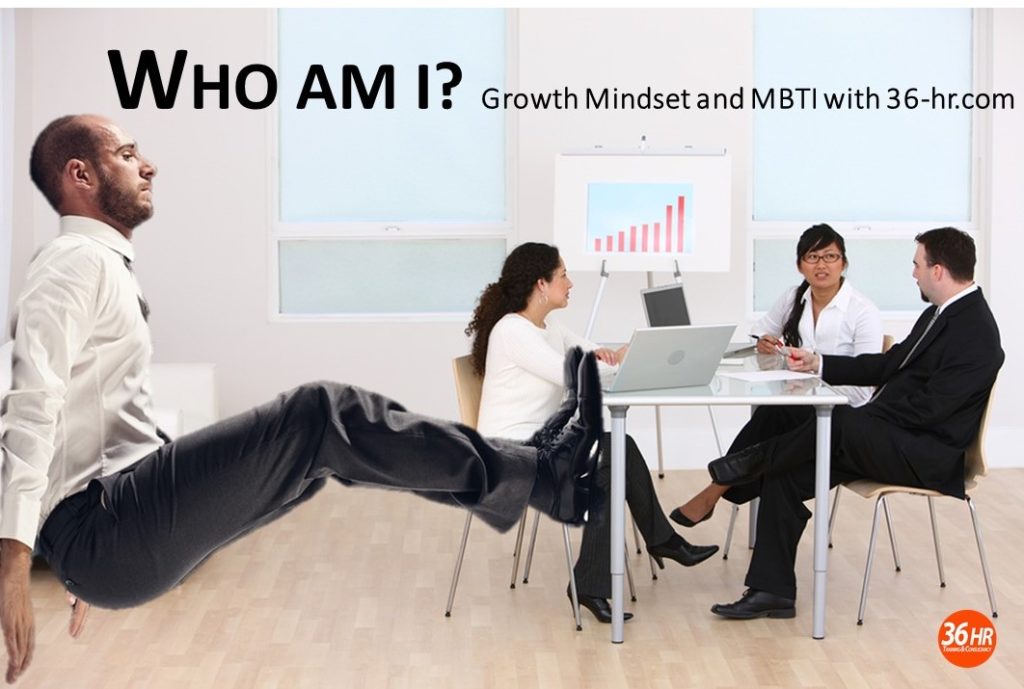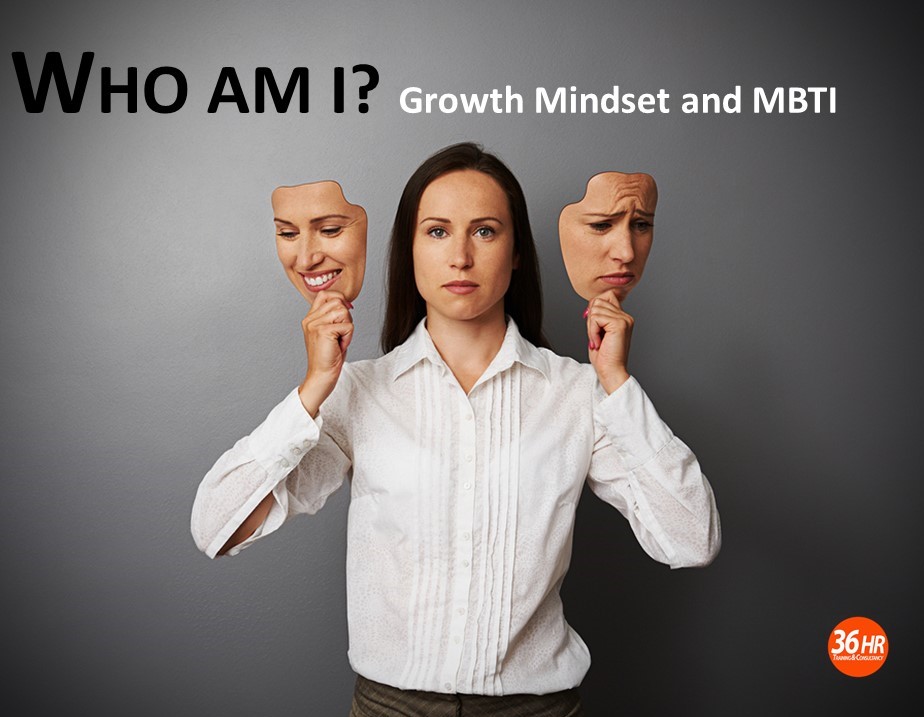
Why A Growth Mindset Can Harness The Power of MBTI Self Awareness
Adopting a “growth mindset” is fundamental to success for organisations and individuals. If you believe your abilities are innate and can’t be significantly improved or changed, your mindset may be described as “fixed.” You tend to view failure as a result of lack of talent or poor fit. (meaning little room for growth). While acknowledging that there is such a thing as aptitude, a healthier outlook involves acknowledging that improving one’s life almost always requires adapting, learning new skills and generally remaining flexible. And that’s the essence of a Growth Mindset. This helps you to build a healthy personal brand.
The concept of a growth mindset and its opposite, a fixed mindset, was developed by psychologist Dr Carol Dweck. According to Dweck’s research, and her book, Mindset: The New Psychology of Success, individuals vary in their understandings of where their skills and abilities come from.
A growth mindset is when you believe you can acquire almost any skill or ability with enough effort. In other words, those with growth mindsets believe they can grow (hence the name). With a growth mindset, you’re more likely to soil your hands, and push forward in the face of challenges and setbacks and eventually find success.
The Path To A Growth Mindset Starting With Self Awareness
Taking the Myers-Briggs Type Indicator (MBTI) assessment to identify your personality type is an important self-awareness exercise, but it doesn’t tell the complete story of who you are and what your personal brand represents. This is especially the case for people with growth mindsets.
Let me explain. Understanding your personality type as a preference for one side or the other can help you also understand that you have the “choice” to use the opposite side of that preference when the situation calls for it. This is part of growing as a person, and exercising that “choice” and effort encapsulates the Growth Mindset essence.

The best way to grow is to have a benchmark understanding of your current state. On an individual level, it necessitates self awareness. Personality type, as explored through the framework of the Myers-Briggs Type Indicator (MBTI) assessment, is one of the quickest and most powerful ways to gain self-awareness and helps you gain a better view of who you are at your most natural “shoes-off” self. It does so by exploring personality preferences along 4 key dimensions, and which we will illustrate with how these understanding can be the basis for growth:
• ![]() Introversion/Extraversion: How We Direct and Receive Energy
Introversion/Extraversion: How We Direct and Receive Energy
Do we tend to focus attention on the outside world of people and activity (extraversion) OR the inner world of thoughts and feelings (introversion)?
To illustrate how a growth mindset approach makes a difference: For someone who prefers introversion, you live in the world of introversion and miss out on the external world. You may prefer to reflect before acting, have a depth of interests, keep a small number of close friends, but when you embrace a growth mindset, you can learn to communicate through talking, working out ideas with others, engaging with more people and learning through these.
• ![]() Sensing/Intuition: How We Receive Information
Sensing/Intuition: How We Receive Information
Do we trust information gathered through the five senses (sensing), and/or our experiences OR on more abstract focus on patterns and possibilities (intuition)?
To illustrate how a growth mindset approach makes a difference: if you have a preference for intuition, and embracing the growth mindset, you stretch yourself by learning how to apply the sensing side to more fully comprehend situations – by also considering facts, and paying attention to details and evidence.
• ![]() Thinking/Feeling: How We Decide and Come to Conclusions
Thinking/Feeling: How We Decide and Come to Conclusions
Do we make decisions based on objective logic (thinking) OR on our values and priorities (feeling)?
And again, to illustrate how a growth mindset approach makes a impact on your development: if you prefer to make decisions based on hard data, benefits, justifications, you know have been objective. To embrace a growth mindset, you make the extra effort to consider your own values, others’ feelings, putting yourself in the shoes of others. This allows you to stretch yourself to consider a more rounded picture.
•  Judging/Perceiving: How We Approach the Outside World
Judging/Perceiving: How We Approach the Outside World
Do we prefer to remain decisive, organised and in control (judging) OR do we like to keep our options open and remain spontaneous and flexible (perceiving)?
To illustrate how a growth mindset approach makes an impact: if you prefer to always be organised in your plans, in embracing a growth mindset, you allow yourself to consider options when they arise.
MBTI Awareness and Growth Mindset Empowers Us
Now this is the interesting fact: our natural MBTI preferences tend to influence our behaviours, but do not dictate them. This means the more aware we are of what our natural preferences are in any given situation, we can consider what behaviour best serve the circumstances and adjust our behaviour accordingly – therein lies the power of Growth Mindset and MBTI.
Illustration of Growth using MBTI as benchmark: Introversion/Extraversion And The Company Brainstorm
One scenario that commonly takes place in the office is the team brainstorm discussion. Let’s ponder over this.
The way a person participates in a brainstorm discussion is highly affected by their preference for either extraversion or introversion.

Those who prefer introversion like to think things through in order to understand them, internalise their thoughts until they are (almost) perfect and, more often than not, like to stay in the background. In a line of work that requires regular brainstorming, it’s easy to imagine that they might feel themselves at a serious disadvantage, especially if colleagues are fluently sharing creative ideas and impressing their boss, while those who prefer introversion appear stuck trying to formulate shareable thoughts and break free to speak!
If you prefer introversion, you may not realize why you don’t like to brainstorm with others. You may only know that the process is bothersome if not excruciating, and this lack of awareness can be extremely career inhibiting. But if you understand that this discomfort is a function of personality preference, you can develop techniques for working around the more difficult parts.
However, with a growth mindset, you can even turn what you might perceive as a weakness into a strength.
For example, you can prepare by researching on the topic to be brainstormed, so that you can come with more well-formulated notes/thoughts. And consciously remind yourself that in brainstorming, an idea does not have to be perfect before it is articulated. It’s perfectly alright to share your ideas with your team – and let others critique and in the process, get a much more rounded view thus allowing improvement to be far better than if you had done everything on your own.
On the other hand, those who prefer extraversion find it easy to share openly, and in fact prefer talking things through. They more they share, the more their ideas flow.
Conversely, looking at the extraverted, it would appear that they are enjoying an advantage. This, however, is not necessary the case due to the ill-will that might be generated if the colleagues view the extraverted as perpetually “talking over” them. This can pose unseen future circumstances.
Consider for a moment that you are a new leader of a team, and you need to get the feedback of everyone in your team. You might be tempted to (incorrectly) interpret the silence of some team members to mean that they don’t have any ideas or lack the intellect or skills.
But if some of the other folks in the room (or on the Zoom call, as is more often the case in today’s world) prefer introversion, you’re probably missing out on valuable input from your team. If you are aware of your own tendencies, you can change your behaviour to grow in new directions.
Where you might be naturally inclined to express your thoughts, you can train yourself to pause, listen and ask questions, probing more deeply into the insights of other team members, building better relationships with colleagues and gaining valuable insights.
Personality Type, with A Growth Mindset, Helps Us Chart A Path For Growth
A growth-mindset approach to understanding and acting on your MBTI preferences gives you a much more fulfilling self development experience based on types. I am certain that Isabel Briggs Myers did not develop this assessment to stereotype you or to box you up. When you look at the MBTI table of 16 types, think of it as a collection of 16 rooms instead of a series of 16 boxes: While we all have a favourite room, we need to consider when and how can we use the other rooms where we can be the best versions of ourselves, in the most appropriate circumstances. The more we learn to flex or learn the ‘opposite behaviour’, the more developed we become.

The hardest thing to change is to disrupt ourselves. Do you agree?
contact us for Growth Mindset, MBTI or Personal Branding workshops
Recommended Readings on Growth Mindset vs Fixed Mindset
- Why Having A Growth Mindset Matters To You
- 15 Ways To Develop A Growth Mindset
- How To Maximise Your Personal Development with MBTI and Growth Mindset
- Learning Videos on Growth Mindset and Fixed Mindset
- Why Companies are recruiting employees with a growth mindset
- Why Growth Mindset Should be part of your personal brand
- How A Fixed Mindset Killed Kodak The King of Film Industry
